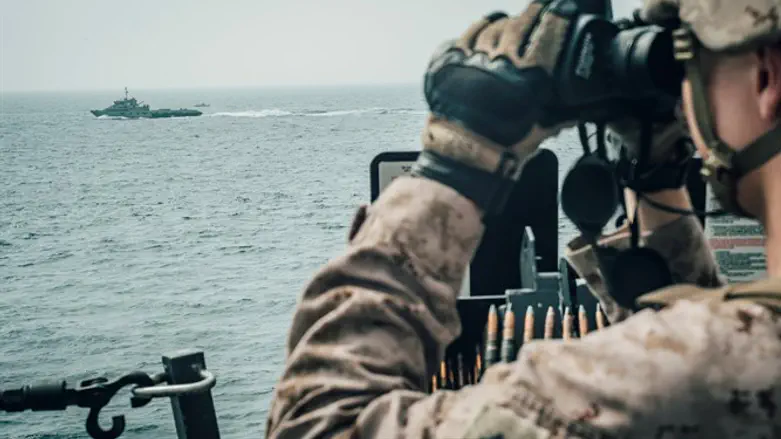
Iran's military said on Monday it will never be a source of conflict in the Gulf, in what appears to be a bid to ease tensions after several high-seas incidents involving US forces.
"The Islamic Republic of Iran has never been and will never be a source of tension or conflict in the region," the country's armed forces said in a statement carried by state media and quoted by AFP.
"But it will always defend its territorial integrity with promptness, tenacity and force," the statement stressed.
"It is clear that any adventurism, harassment or provocation will be met with a firm reaction from the Iranian armed forces, whose aggressors, especially the United States, will suffer the consequences," it added.
The Iranian armed forces also "strongly warned" the United States "and its satellite states" against the temptation to create "tensions... in the Gulf of Oman and the Persian Gulf".
The statement follows a tense encounter between US and Iranian ships in the Persian Gulf earlier this month.
The US military said at the time that 11 Revolutionary Guards naval vessels from the Guards navy came close to US Navy and coast guard ships in the Gulf, calling the moves “dangerous and provocative”.
Iran’s Revolutionary Guard acknowledged that the incident had taken place, but also claimed that it was American forces who sparked the incident.
US President Donald Trump this week warned Tehran over its harassment of US vessels.
Trump tweeted that he had instructed the US Navy to fire on any Iranian ships that harass it at sea, but said later he was not changing the military’s rules of engagement.
The head of Iran’s Revolutionary Guard, General Hossein Salami, then responded to Trump’s threat and said that Iran will destroy US warships if its security is threatened in the Persian Gulf.
On Saturday, Iranian President Hassan Rouhani said that Iran will not initiate any war in the region despite US “provocations”.
Tensions between Iran and the United States have escalated since 2018, when Trump withdrew from Tehran’s 2015 nuclear deal with six world powers and reimposed sanctions on the Islamic Republic.
The tensions reached historic heights in early January when top Iranian military commander Qassem Soleimani was eliminated in a US drone strike in Baghdad. Iran retaliated by firing missiles at bases in Iraq where US troops were stationed.
Iran regularly holds drills at the Strait of Hormuz, which is located at the mouth of the Persian Gulf and through which about a third of all oil traded at sea passes.
The Islamic Republic has threatened more than once to close the Strait of Hormuz, with the United States warning Iran in response that any attempt to close the strait would be viewed as a "red line" -- grounds for US military action.
In the last few years there have been several close encounters between Iranian and American vessels in the area.
